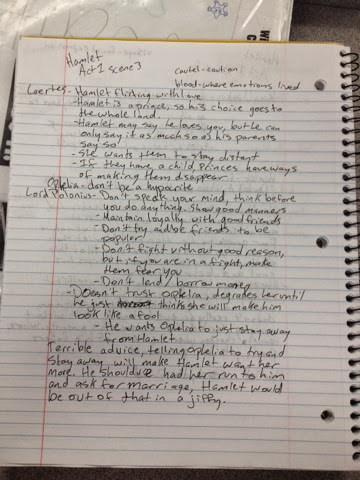In this line, spoken by Polonius, he realizes that Hamlet has gone completely insane, but still senses that there is something behind it. He thinks that maybe there is a reason that Hamlet has been acting the way he has but he has the wrong idea as to why, thinking that it is for the love Hamlet shares with his daughter, Ophelia. Seeing what Hamlet has had to go through with the whole dad dying, mom marrying uncle, uncle ending up being the murderer and all, it seems like the normal thing for Hamlet to have done to deal with his stress. Just completely go crazy because he can't seem to control his emotions. But in reality Hamlet is extremely smart and has a well thought out plan behind this all. Most people in their teenage years living through what Hamlet had to go through would probably have been in the same boat, maybe taken it at a different angle depending on person, but overall they would most likely act out and start to cause ruckus's.
Throughout the play, Hamlet has done things to set himself up to be seen as this "madman." Although he still is dealing with the atrocity in his own family and should have plenty of built up emotions and stress about it all, seen when it finally comes out when he throws it all on his mom. It is seen that Hamlet is not all mad because when he kills Polonius, he is almost distraught in finding out that it was not Claudius that he had killed and instead an innocent man. It shows he does have feelings and does have a heart and not completely insane.
"Though this be madness, yet there is method in't," a pretty famous line from the play Hamlet helps to conclude on the fact that Hamlet is not all insane, just a very good actor. It helps to push along the idea that Hamlet has a purpose behind everything that he is doing, and in the end has quite a good reason to enact the revenge on his uncle/stepfather.(still the weirdest thing to think about)













.jpeg)

